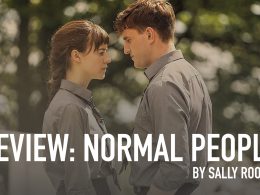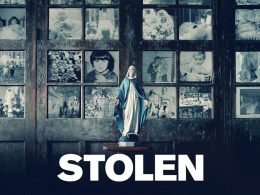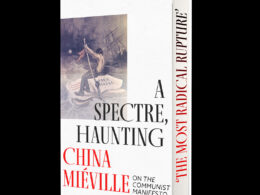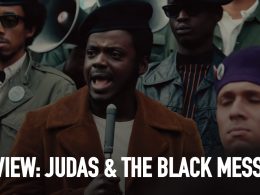- By Dean O’Donnell
The first episode of Virgin Media’s new 5-part docuseries The Guards: Inside the K aired earlier this week to widespread acclaim from viewers and critics alike. Set in the “K-district”, a term that describes the policing precinct encompassing Blanchardstown, Cabra and Finglas, the show follows Gardaí on the beat in some of Dublin’s most deprived suburbs.
Yet, while it has been praised for its production qualities and gritty depiction of what Gardaí are up against, we should be under no illusions about what it actually represents: a demonisation of hard-pressed working-class communities, a sensationalization of crime and, most importantly, an exaltation of the state’s police forces.
Caricature of working-class communities
This comes through in the opening minutes. Various guards set the scene, testifying to the extent of the area’s degradation. One goes as far to say: “The first day I went out, I thought I’d been dropped in Beirut.” As the show progresses we see footage of arrests, murder scenes and verbal abuse being hurled at guards. There is a brief acknowledgement that these communities are also comprised of ordinary families trying to get by — that it’s not all crime and violence. Yet the overall thrust of the narrative suggests otherwise. The K-district is caricatured as a lawless land in need of a heavy police presence.
Although there has been an undoubtable spike in violent drug related crime in the last year, Inside the K chooses not to explore the underlying social factors that have given rise to such phenomena. There is no mention of the accumulated effects of austerity under a succession of neoliberal governments; no mention how this hit the communities depicted in this series the hardest; no mention of funds to addiction programmes being drastically cut and levels of drug use subsequently rising; no mention of the dire poverty, lack of housing and poor employment prospects that drive many young people into crime in the first place.
Instead we are left with a one-dimensional picture of ‘bad guys’ in ‘bad neighborhoods.’
The real record of the Garda
The timing of such a production is no accident. In recent years there has been a growing questioning of the nature of the Gardaí, who they serve and who they represent. From the callous smear campaign of whistleblower Maurice McCabe to the numerous occasions guards have resorted to brute force on peaceful protests (Shell to Sea, Jobstown, Frederick Street housing occupation, to name a few) they have proved themselves time and time again as loyal defenders of the status quo.
Many have been rightfully shocked by such revelations as well as the footage and images circulated on social media by those on the receiving end of garda brutality. In contrast, Inside the K puts the Gardaí in control of what we see and what we don’t. It projects an image of the guards as calm and reasonable at all times, often in the face of harsh treatment from the estates’ unruly residents. They are the good guys doing a thankless job, duty-bound to protect and serve. The series therefore attempts to cleanse their image and assure that any negative experiences people may have had before are not reflective of an otherwise noble police force.
The State — protecting the elite’s privileges
Yet the examples of guards coming down on the side of the establishment against working class people are not isolated incidents. Rather it is the police simply carrying out their role under capitalism. An economic system that concentrates enormous wealth and power in the hands of a tiny minority of elites, at the expense of the exploited majority, creates huge class antagonisms. The ruling class therefore relies on various tools to maintain its power and keep the working class in check.
Marxists understand that the state does just that. The police, the courts, the prisons, far from being neutral, are instruments used to reproduce a deeply unequal system. The fact that our prisons are almost exclusively populated by the poorest sections of society or that a political protestor is more likely to see the inside of a cell than a reckless banker illustrates exactly whose interests these institutions really protect and serve.
For democratic community control
Finally, it is no coincidence that Virgin Media is owned by Irish-American multi-billionaire John Malone. With political instability a key feature of the current period and the legitimacy of capitalism increasingly being undermined, TV shows like Inside the K serve as ideological props for the status quo, one from which Malone and his ilk massively benefit.
Sensationalising crime only diverts attention away from the root of the issue and the real solutions required. Drug addiction should be treated as a health problem, not a criminal one. Power needs to be taken away from the major criminal gangs by decriminalising the use of drugs. This should be linked to major investment in addiction programmes via a new national health service that’s free at the point of use. Combined with this, we need massive investment in the building of public homes, a properly funded education system and apprenticeships for young people.
The utter inability of capitalism to provide these basic needs for all points to the need to build a powerful working-class movement that fights for socialist change. As part of this we must demand an entire transformation of the Garda whereby they’d be under community control — accountable to and run in the interests of working-class people, not the super-rich. Needless to say a completely different force to the one glorified in Inside the K.












